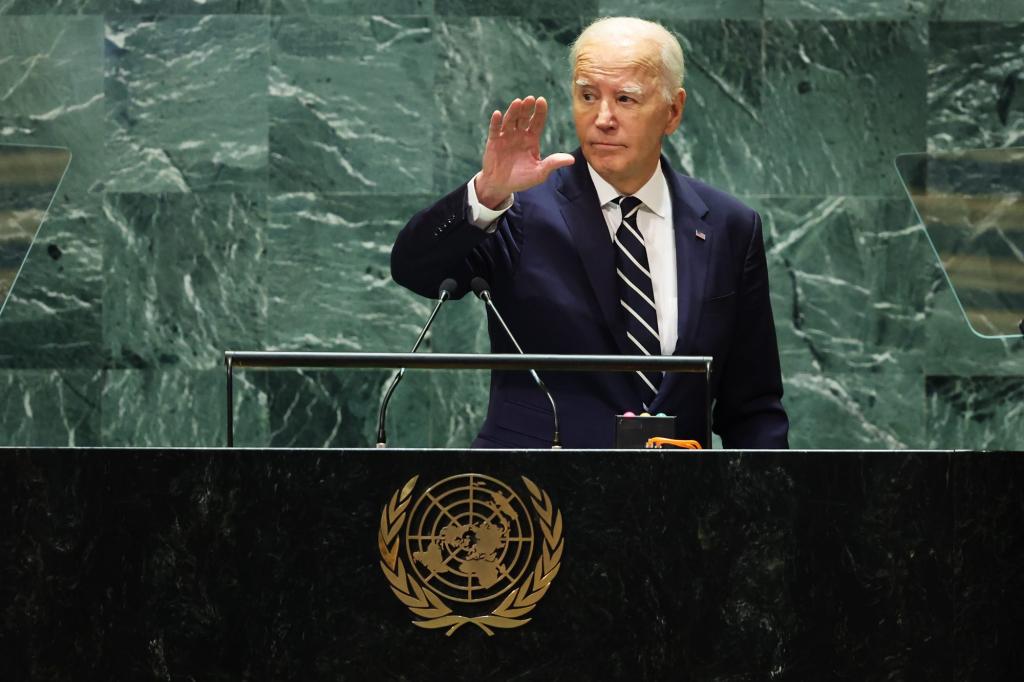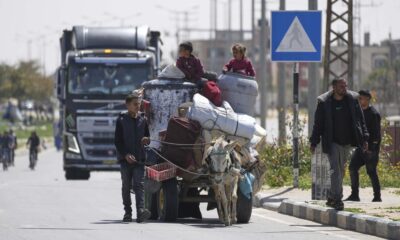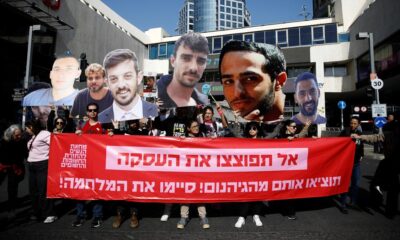Breaking News
DOJ defends UN staffers who collaborated with Hamas

When discussing her rival, former President Donald Trump, Kamala Harris states, “No one is above the law.”
However, the Harris-Biden administration is currently arguing in federal court that certain individuals are indeed above the law, specifically the UN employees who aided Hamas in constructing its terror facilities and initiating a genocidal attack on Oct. 7.
In June, victims of the Oct. 7 massacre filed a lawsuit in New York against the UN Relief and Works Agency for Palestine Refugees, accusing UNRWA and its officials of supporting Hamas.
There is ample evidence of UNRWA’s collaboration with the designated terror group, with statements dating back to 2004 from then-UNRWA Commissioner-General Peter Hansen acknowledging Hamas members on the UNRWA payroll.
Fast forward twenty years, and many UNRWA employees were directly involved in the Oct. 7 terror attack, with some even participating in the imprisonment and torture of hostages following the incident.
Despite claiming to champion human rights, the United Nations has promised to waive any immunity for acts of terror.
However, in response to the victims’ lawsuit, the UN and its employees invoked immunity, a stance supported by the United States Department of Justice, which argued for “absolute immunity” for both UNRWA and its workers.
As the first anniversary of Oct. 7 approaches, the DOJ is advocating for the attackers of the incident.
The DOJ contends that UN officials are protected by immunity under the 1945 International Organizations Immunities Act.
While historically the US has backed broad UN immunity, the intertwining of UN agencies with a designated terror group like Hamas raises questions about the extent of this immunity.
Moreover, the administration’s defense of UN-Hamas terrorists may not be legally necessary, as the IOIA’s immunity provisions may not apply to UNRWA, an organization that primarily receives funding from external sources.
Even if IOIA immunity does apply, it does not grant UN employees the license to commit heinous acts. The Supreme Court’s 2019 ruling clarifies that international organizations should have immunity similar to that of foreign governments under the Foreign Sovereign Immunities Act.
By this standard, the administration could have designated UNRWA as liable for its association with a State Department-designated terror group like Hamas.
The DOJ’s decision to argue for greater immunity for UNRWA than for foreign countries and former presidents is a policy choice, not a legal requirement.
The need for the Limiting Immunity for Assisting Backers of Lethal Extremism (LIABLE) Act, introduced by Sen. Ted Cruz, underscores the importance of holding international organizations accountable for promoting terrorism.
As former prosecutor, Kamala Harris should support measures that prevent organizations like UNRWA from evading responsibility for their actions.
Mark Goldfeder is director of the National Jewish Advocacy Center. Eugene Kontorovich is a professor at George Mason University Scalia Law School.
-

 Destination9 months ago
Destination9 months agoSingapore Airlines CEO set to join board of Air India, BA News, BA
-

 Breaking News10 months ago
Breaking News10 months agoCroatia to reintroduce compulsory military draft as regional tensions soar
-

 Gadgets4 months ago
Gadgets4 months agoSupernatural Season 16 Revival News, Cast, Plot and Release Date
-

 Tech News1 year ago
Tech News1 year agoBangladeshi police agents accused of selling citizens’ personal information on Telegram
-

 Productivity12 months ago
Productivity12 months agoHow Your Contact Center Can Become A Customer Engagement Center
-

 Gadgets4 weeks ago
Gadgets4 weeks agoFallout Season 2 Potential Release Date, Cast, Plot and News
-

 Breaking News10 months ago
Breaking News10 months agoBangladesh crisis: Refaat Ahmed sworn in as Bangladesh’s new chief justice
-

 Toys12 months ago
Toys12 months ago15 of the Best Trike & Tricycles Mums Recommend























